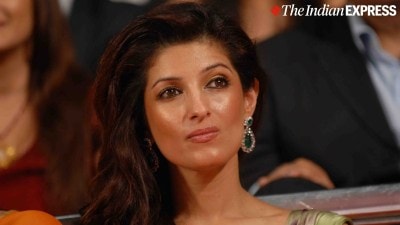Messenger146;s the message
The speech of Prime Minister Atal Bihari Vajpayee from the ramparts of the Red Fort is a familiar message of national unity, well being and ...

The speech of Prime Minister Atal Bihari Vajpayee from the ramparts of the Red Fort is a familiar message of national unity, well being and progress. However the contents of the speech gain significance because of the political background of the speaker. Admittedly, the nation has got used to a Jana Sanghi who openly declares his loyalty to the RSS while speaking on occasions like a diehard Nehruvian. From his 8220;Kumarakom musings8221; to his 8220;Manali reflections8221; and his various national addresses, Vajpayee has always reinforced his Nehruvian worldview. It is a different matter that when he speaks in the midst of hardcore Sangh Parivaris he is more strident in his Hindutva and less assertive in his Nehruvianism. Whatever the intellectual and ideological battle that goes on in the recesses of Vajpayee8217;s mind, he does the nation proud with his statesmanlike speeches on such occasions. For all the bigotry of so many of his party members, he himself rises above narrow sectional loyalties to address the concerns of the nation as a whole.
This is manifest in his Independence Day speech. If there is anything to quarrel about his priorities as illustrated by his speech it is the excessive weight given to Pakistan and Kashmir. Perhaps standing at the ramparts of the Red Fort on August 15 no one can really forget this aspect of our national identity and political pre-occupation. However, 56 years after Independence, an Indian prime minister must address the larger concerns of the nation as a whole and give Pakistan and the problems it continues to cause for us its due place, without being overly obsessed.
Vajpayee did well to emphasise that 8220;we want to create a dynamic economy that not only succeeds against global competition, but is also caring and compassionate towards the poor and the neglected.8221; He was right to add: 8220;Development requires peace, goodwill and mutual cooperation. Those who wish to divide the society on the basis of religion, caste or community are doing harm to the country. India is a multi-religious nation8230; We should always care for the minorities and be attentive towards their welfare.8221; It is, however, important to remember that 8220;minorities8221; also have democratic 8220;rights8221;, are not just to be 8220;cared8221; for by the majority. Whatever the present cynicism with respect to terms like 8220;secularism8221; and 8220;socialism8221; and even 8220;democracy8221;, the fact remains that 56 years ago when India had its 8220;tryst with destiny8221; it was born to become a constitutional republic wedded to the values of democracy, secularism and socialism. The last has been defined by Vajpayee as 8220;compassion8221;, and rightly so, and not some kind of bureaucratic raj. The notion of 8220;independence8221; today has to be one of conceding mutual dependence between peoples, nations and markets for we all live in a global village.
- 01
- 02
- 03
- 04
- 05































